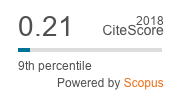Escrita Inventada e Aquisição da Leitura em Crianças de Idade Pré-escolar
Mots-clés :
Psicologia; Psicologia da Educação; Literacia, Programa de escrita, Leitura, Educação infantilRésumé
Vários investigadores mostraram que actividades de escrita inventada com crianças em idade pré-escolar contribuem para a aquisição da literacia, tendo um impacto positivo na evolução da sua escrita e consciência fonológica. O nosso objectivo foi avaliar o impacto de um programa de escrita inventada na aquisição da leitura. Participaram 60 crianças Portuguesas de 5 anos que não sabiam ler nem escrever. Foram aleatoriamente divididas em dois grupos, experimental e controlo, equivalentes quanto à s letras conhecidas, consciência fonológica e inteligência. O grupo experimental participou num programa de escrita inventada e o grupo de controlo num programa de leitura de histórias. A leitura de palavras foi avaliada num pré-teste, pós-teste e pós-teste diferido. O grupo experimental teve resultados superiores nos dois pós-testes.
Téléchargements
Références
print. Cambridge, MA: MIT Press.
Alves Martins, M., & Silva, C. (2006a). The impact of invented
spelling on phonemic awareness. Learning and Instruction,
16, 41-5. doi: 10.1016/j.learninstruc.2005.12.005
Alves Martins, M., & Silva, C. (2006b). Phonological abilities
and writing among Portuguese preschool children. European
Journal of Psychology of Education, 21, 163-182. doi: 10.1007/
BF0373575
Blanche-Beneviste, C. (2002). La escritura, irreducible a un
“codigo”. In E. Ferreiro (Ed.), Relaciones de (in)dependencia
entre oralidad y escritura (pp. 15-30). Barcelona: Geddisa
editorial.
Caravolas, M., Hulme, C., & Snowling, M. J. (2001). The foundations
of spelling ability: Evidence from 3-year longitudinal study.
Journal of Memory and Language, 45, 751-754.
Cardoso-Martins, C., & Batista, A. (2005). O conhecimento do
nome das letras e o desenvolvimento da escrita: Evidência de
crianças falantes do português. Psicologia: Reflexão e Crítica,
18, 330-336.
Chomsky, C. (1970). Reading, writing and phonology. Harvard
Educational Review, 40, 287-309.
Clarke, L. K. (1988). Invented versus traditional spelling in first
graders’ writings: Effects on learning to spell and read.
Research in the Teaching of English, 22, 281-309.
Clay, M. (1972). Reading: The patterning of complex behaviour.
London: Heinemann.
Ehri, L. C. (1991). The development of reading and spelling in
children: An overview. In M. Snowling & M. Thomson (Eds.),
Dyslexia: Integrating theory and practice (pp. 63-94). London:
British Dyslexia Association.
Ehri, L. C., & Wilce, L. S. (1987). Does learning to spell help
beginners learn to read words? Reading Research Quarterly,
20, 47-65.
Ferreiro, E. (1988). L´écriture avant la lettre. In H. Sinclair (Ed.),
La prodution des notations chez le jeune enfant (pp.18-69).
Paris: Presses Universitaires de France.
Ferreiro, E., & Teberosky, A. (1979). Los sistemas de escritura en
el desarrollo del niño. México: Siglo XXI.
Goswami, U., Ziegler, J. C., Dalton, L., & Schneider, W. (2003).
Nonword reading across orthographies: How flexible is the
choice of reading units? Applied Psycholinguistics, 24, 235-
247. doi: 10.1017/S0142716403000134
Liberman, I. Y., Shankweiler, D., Fischer, F. W., & Carter, B.
(1974). Reading and the awareness of linguistic segments.
Journal of Experimental Child Psychology, 18, 201-212. doi:
10.1016/0022-0965(74)90101-5
Mann, V. A. (1993). Phoneme awareness and future reading ability.
Journal of Learning Disabilities, 26, 259-269.
McBride-Chang, C. (1998). The development of invented spelling.
Early Education and Development, 9, 147-160. doi: 10.1207/
s15566935eed0902_3
Ouellette, G., & Sénéchal, M. (2008a). A window into early
literacy: Exploring the cognitive and linguistic underpinnings
of invented spelling. Scientific Studies of Reading, 12(2), 195-
219. doi: 10.1080/10888430801917XXX
Ouellette, G., & Sénéchal, M. (2008b). Pathways to literacy: A
study of invented spelling and its role in learning to read.
Child Development, 79(4), 899-913. doi: 10.1111/j.1467-
8624.2008.01164.x
Perfetti, C. A., & Hart, L. (2002). The lexical quality hypothesis.
In L. Vehoeven. C. Elbro & P. Reitsma (Eds.), Precursors of
functional literacy (pp. 189-213). Amsterdam/Philadelphia:
John Benjamins.
Raven, J., Raven, J. C., & Court, J. H. (1998). Manual for Raven’s
Progressive Matrices and Vocabulary Scale. Section I. General
Overview. Oxford: Oxford Psychologists Press.
Read, C. (1971). Pre-school children’s knowledge of English
phonology. Harvard Educational Review, 41, 1-34.
Rieben, L., Ntamakiliro, L., Gonthier, B., & Fayol, M. (2005).
Effects of various early writing practices on reading and
spelling. Scientific Studies of Reading, 9, 145-166. doi:
10.1207/s1532799xssr0902_3
Richgels, D. (1995). Invented spelling ability and printed word
learning in kindergarten. Reading Research Quarterly, 30(1),
96-109.
Shatil, E., Share, D. L., & Levin, I. (2000). On the contribution of
kindergarten writing to grade 1 literacy: a longitudinal study
in Hebrew. Applied Psycholinguistics, 21, 1-21.
Silva, C. (2008). Bateria de provas fonológicas. Lisboa: ISPA.
Silva, C., & Alves Martins, M. (2002). Phonological skills and
writing of pre-syllabic children. Reading Research Quarterly,
37, 466-483. doi: 10.1598/RRQ.37.4.6
Tolchinsky, L. (2005). The emergence of writing. In C. MacArthur,
S. Graham & J. Fitzgerald (Eds.), Handbook of writing research
(pp. 83-96). New York: Guilford.
Treiman, R. (1998). Why spelling? The benefits of incorporating
spelling into beginning reading instruction. In J. L. Metsala &
L.C. Ehri (Eds.), Word recognition in beginning literacy (pp.
289-313). Mahwah, NJ: Erlbaum.
Treiman, R. (2004). Phonology and spelling. In P. Bryant & T. Nunes
(Eds.), Handbook of children’s literacy (pp. 31-42). Dordrecht,
the Netherlands: Kluwer.



